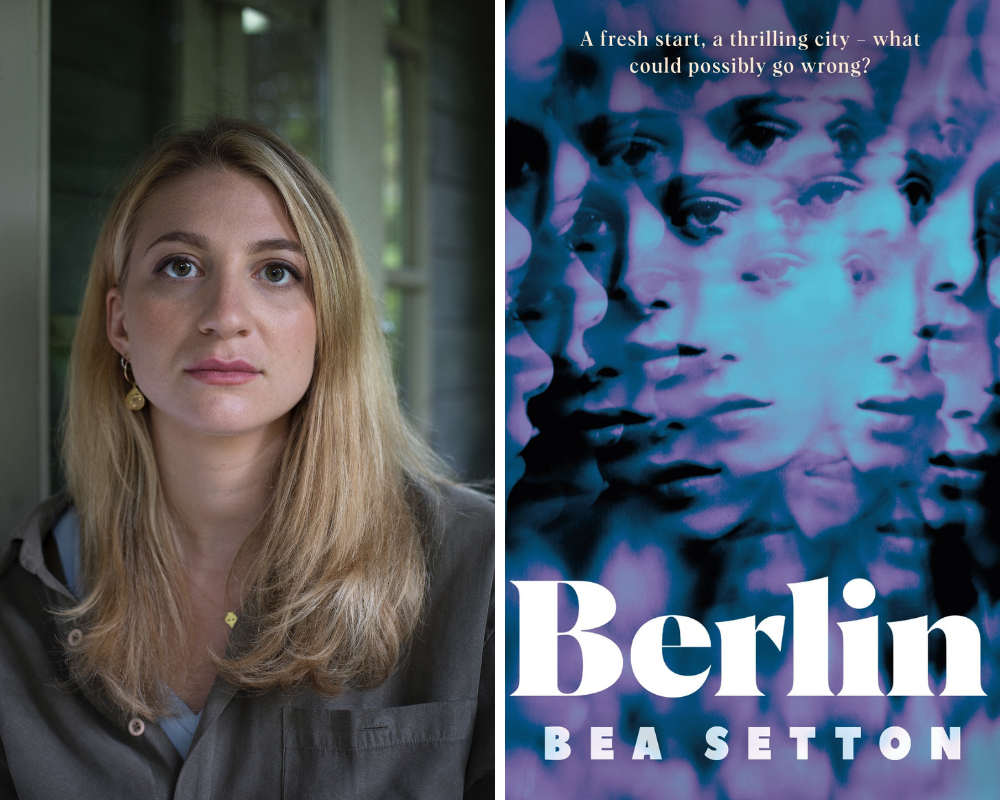Bea Setton on Berlin and how the German city inspired her debut novel

One of the profound anxieties I have is that because I only have one life, I am temporally and geographically limited. I can’t live in Brighton and in Barcelona and in Brussels at the same time. I strain against my finitude and wish I could be everywhere.
Reading calms this restlessness and allows me to transcend my limits. This is why I’ve always loved novels with a sense of place. I feel that I know what it is like to grow up in Orhan Pamuk’s Istanbul, hang out in Donna Tartt’s Las Vegas, make a life in Tom Franklin’s Mississippi. When I wrote Berlin, I really wanted to give my readers that travelling experience: to place them in the city so that they would know the food, colours and smells, the strange and wonderfully disorienting social fabric of the place.
I moved to Berlin after dropping out of a philosophy programme in Belgium. I was feeling extremely sorry for myself because I couldn’t seem to find a job (read: the world didn’t fall at my feet as I’d expected). But when I arrived in Berlin everyone suddenly stopped asking me what I did for a living. In that city it is rude and uncool (and feeling uncool in Berlin is awful) to ask people “what they do”. This is not a place where people are defined by their work. No one cares.
There are economic reasons for this: unlike the other cities I have lived (Paris and London) the cost of living in Berlin is still low enough for people not to have to sacrifice their entire lives just to survive. Most of my friends in Berlin were life-long students, living off university grants. Many worked 9-5 jobs in call centres, waitressed and/or received unemployment benefits. In Berlin there is far less stigma around receiving government assistance when money is short.
I loved this side of Berlin. It seemed so different to the other capital cities I know well. My friends in London have to work ferociously hard because the city is so expensive. This explains another distinction about Berlin: people have time to hang out there. There is no need for GCals. People can afford idle time. Of course this is changing: Berlin isn’t a utopia. The influx of foreigners with higher incomes has meant that many people are being priced out of their native neighbourhoods.
In many ways Berlin is a city of dualities. Obviously there’s the historic split between East and West, which continues to permeate the atmosphere of the different parts of the city: the impressive boulevards and wedding-cake architecture of the eastern tower blocks so different from the colourful terraces of Kreuzberg and Neukölln. Then there’s the double edge of the freedom of the place: you are truly free to dress exactly how you want, to express your sexuality and gender openly, to do any kind of work or none at all. No one will judge you.
But in Berlin, self-expression sometimes closely resembles self-destruction. Many people in the city struggle with various covert behaviours and substance abuse disorders, and are mostly left alone to do as they please. There’s a dark side to that unchecked freedom; it’s great to be left alone to do what you want, not so great to be left alone to ruin your life.
Berlin by Bea Setton is out now (Doubleday, £14.99)


